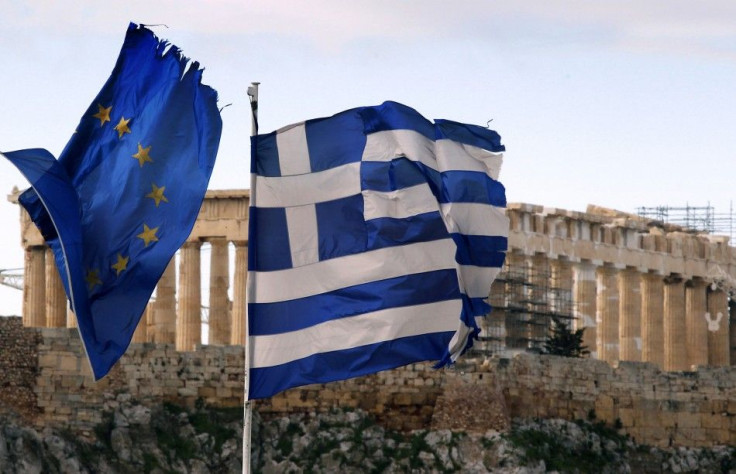Greece Says 75% Of Private Creditors Agree To Crucial Bond Swap

Over 75 percent of private creditors agreed Thursday to a make-or-break swap on their holdings of Greek government debt, apparently saving the country from financial ruin, sources close to the deal were quoted as saying.
Greece's government said it needed to breach the three-quarters threshold if it was to force any holdout bondholders to swallow losses of up to 74 percent and secure the country's long-sought financial rescue -- the second in two years -- from European and international lenders .
Greece had until 3 p.m. EST (2000 GMT) Thursday to reach the agreement threshold with creditors, who will see the value of their paper reduced drastically.
By Thursday morning, about 60 percent had agreed to the swap, with Greek media and other sources claiming the figure was close to or above 75 percent.
Prime Minister Lucas Papademos told members of the Greek cabinet that he was expecting maximum participation for the deal, known as Private Sector Involvement, or PSI.
With the support of its European partners, Greece has formed an appropriate framework with significant motives for the exchange of bonds, Papademos said, according to a transcript of his comments cited by Dow Jones Newswires.
The pace of responses to the bond offer is good, the percentage of bondholders tendering voluntarily is very high, a government official, who spoke on condition of anonymity, told Reuters. It is going well, we are optimistic.
The chief negotiator for the private bondholders, Charles Dallara of the Institute of International Finance, predicted that the swap would proceed with very high participation among his clients, Reuters reported, though he doubted Greece would achieve the 90 percent target it's seeking.
The government said it would announce the final level of participation Friday morning.
Elsewhere, markets responded favorably, with bank stocks rising sharply and risk premiums on Italy's and Spain's government bonds falling.
The new bonds will have a face value less than half the previous securities, reduced interest rates and longer maturities, leaving the institutional creditors that accept the deal with losses exceeding 70 percent.
The deal is a final precondition for Greece to get a $172 billion loan tranche from the European Union and the International Monetary Fund. The rescue money is designed to prevent Greece from defaulting on a March 20 bond redemption.
Greece hopes to wipe out $271 billion worth of debt after the restructuring.
For Greece to receive the EU-IMF bailout, two-thirds of private creditors holding bonds need to agree to exchange their current paper. If this threshold is reached, the government in Athens can then force remaining holdouts to accept the deal, through a mechanism known as collective-action clauses. The legally binding clauses are included with Greek domestic-law bonds and allow the will of a majority of creditors that agree to the terms of the debt restructuring to apply to all creditors.
Ministers from EU member governments and the IMF are expected to give final approval for any deal Friday morning.
Even if the swap is approved, analysts are concerned that the debt restructuring could trigger the payment of credit default swaps, which many investors took out as insurance against a default by the Greek government.
The 10 percent of remaining bondholders with securities regulated by English and international law are expected to wage a lengthy legal battle with Greece over any restructuring deal.
© Copyright IBTimes 2024. All rights reserved.




















